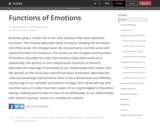
Text and links to all ancillary materials for Module 31
- Subject:
- Psychology
- Social and Behavioral Sciences
- Material Type:
- Module
- Reading
- Teaching/Learning Strategy
- Author:
- David Matsumoto
- Hyisung Hwang
- Date Added:
- 05/31/2021
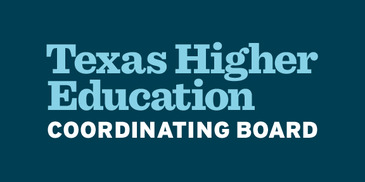
The content was developed as part of an Open Education Resources Grant Program of the Texas Higher Education Coordinating Board.
the content was developed as part of the Open Education Resources Grant Program of the Texas Higher Education Coordinating Board

Text and links to all ancillary materials for Module 31

The course provides an overview of cloud computing from a technical and business perspective and includes cloud computing characteristics and cloud models, enabling technologies for the cloud, services, migration, connectivity, security. Other topics include business continuity and disaster recovery, testing, automation, and DevOps. The course also provides access to resources to earn industry certification.

BIOL 1106 OER course developed with funding from Texas Higher Education Board - Open Educational Resources Grant Program (OERGP) through the Governor's Emergency Education Relief (GEER) Fund. 2020-2022 RFA # 23906.
This laboratory-based course accompanies Biology 1306, Biology for Science Majors I. Laboratory activities
reinforce the fundamental principles of living organisms, including physical and chemical properties of life,
organization and function. Study and examination of the concepts of cytology, reproduction, genetics, DNA, Biotechnology and scientific reasoning are included.
The course is designed for both 100% online and 100% in-person laboratory options. It is organized into modules. Each module includes an introduction to the topic, tutorials, online and in-person activities, lab reports, as well as pre and post lab quizzes to ensure learner success.
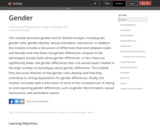
Text and links to all ancillary materials for Module 10

This is a free to use lab manual for General Biology for Nonscience Majors I labs. The manual is specifically designed to suit online courses and has 15 modules that were developed by compiling various OER resources. Each module corresponds to one lab and includes background reading, prelab qiz, the lab exercise and lab report. Simple experiments that could be performed using common household materials have also been included to make the content more relatable and to provide online students with hands on experience.
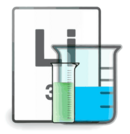
These are OER labs created for General Chemistry II courses.
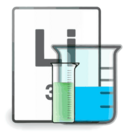
This material is based on key universal learning objectives for General Chemistry II (CHEM 1412) course. They are adaptable for various textbooks and include images sourced from Wikimedia Commons, Openstax.org, or those created by myself. DRAFTS.

This module teaches the basic rules of naming binary compounds for general chemistry. Hydrocarbons and acids are not included.

Lecture video for Humanities 1301.
Author: Prof. Pat Amazcua, San Jacinto College Faculty
OER Provider: San Jacinto College
Creative Commons License: CC BY 4.0
This work is licensed under a Creative Commons Attribution 4.0 International License. However, some of the images contained within are licensed under CC-BY ver 2.0 or 3.0.
https://creativecommons.org/licenses/by/4.0/Language: English

BIOL 1106 OER course developed with funding from Texas Higher Education Board - Open Educational Resources Grant Program (OERGP) through the Governor's Emergency Education Relief (GEER) Fund. 2020-2022 RFA # 23906.This laboratory-based course accompanies Biology 1306, Biology for Science Majors I. Laboratory activities reinforce the fundamental principles of living organisms, including physical and chemical properties of life, organization and function. Study and examination of the concepts of cytology, reproduction, genetics, DNA, Biotechnology and scientific reasoning are included.The course is designed for both 100% online and 100% in-person laboratory options. It is organized into modules. Each module includes an introduction to the topic, tutorials, online and in-person activities, lab reports, as well as pre and post lab quizzes to ensure learner success.

HUMA 2319 - American Minority Studies
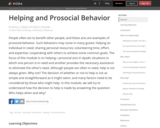
Text and links to all ancillary materials for Module 52
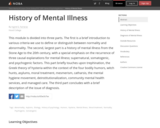
Text and links to all ancillary materials for Module 38
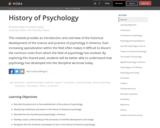
This module provides an introduction and overview of the historical development of the science and practice of psychology in America. Contains text and all ancillary materials.

These homework assignments are aligned with the topics in the Calculus I Lecture Notes. On average, there is one homework per week of lectures. All files are included in a single zip folder as well. With the exception of a few of the application problems, all materials are original. They were funded by the THECB OER Development and Implementation Grant, 2021.

These homework solutions are aligned with the topics in the Calculus I Lecture Notes. On average, there is one homework per week of lectures. All files are included in a single zip folder as well. With the exception of a few of the application problems, all materials are original. They were funded by the THECB OER Development and Implementation Grant, 2021.
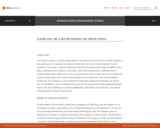
This article explores virtue ethics, including the theories of Aristotle, Aquinas, Buddhism, Kongzi, and Laozi.

The course is an examination of the Human Condition that pulls from a wide variety of disciplines—the Humanities, Classical Studies, and the Sciences. The integration of these different disciplines enables the OER material to facilitate an interdisciplinary conversation about the human experience through the use of printed and visual classic texts, lecture videos, interactive student materials, and original assessment tools.

This is the 1-credit coreq designed to accompany ENGL 1301. The course has four components: grammar, reading questions, writing style assignments, and reflections. There is a module for each of the components, with templates, videos, and resources. There is also an instructional resources module.
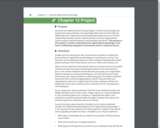
Purpose
Industrial and organizational (I-O) psychology is a branch of psychology that studies how human behavior and psychology affect work and how they are affected by work. Organizational psychology specifically focuses on how the relationships between workers impacts business and how organizational culture impacts individual behavior and employee satisfaction. The purpose of this project is to better understand what organizational psychology is and how it is effectively employed in the business world to maximize success.